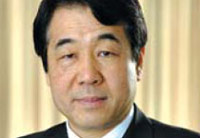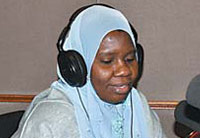Silk road to the skies
Spurzem's innovation is that he applied the theories of the graphics processing unit, a core part of the video driver of a personal computer, to supercomputers.
"With the installation of GPU cards, the computing power of a supercomputer is improved, becoming 50 times faster than traditional supercomputers. This is a technological revolution," Spurzem says.
|
 |
|
 |
|
 |
Tianhe 1A, China's milestone supercomputer, can perform 2.57 quadrillion computing operations per second and was first among the Top 500 supercomputers' list in November 2010.
Related video: Silk road to the skies
Spurzem's Tiger computer uses the same technology as Tianhe.
"When I came to China in 2009, the Tianhe computer was still under design, and it became the fastest in 2010. It is perhaps because China is a late beginner in some key technologies that it could leapfrog forward."
In Europe and the United States, supercomputers had been around since the 1960s, and hardware revolutions meant many program applications had to be changed.
"That was why it was hard for me to get support in Europe when I came up with the idea of the GPU cards. In China, there are better research possibilities," Spurzem says.
Maxwell Tsai, 24, from Guangzhou, cherishes the opportunity to be Spurzem's student.
"In our team, even the most senior scientist shows respect for another person's idea. Professor Spurzem, for example, is very supportive of my new discoveries, even though they may not be completely to his research interest," Tsai says.
"Instead of telling me what to do, Spurzem would brainstorm ideas so I can figure out what to do and how to do it under his guidance."
In 2011, Spurzem's work received recognition by Europe - and his team was awarded the Partnership for Advanced Computing in Europe prize, which is usually granted to major science achievements with high-performance computing resources in Europe.
On Dec 5, China's top political leader Xi Jinping met with 20 foreign experts working in China. Spurzem was among them.
"This is new for Chinese leaders," Spurzem says. "In the US, about 50 percent of scientists are foreign immigrants. Maybe China, in the same way, will have a bigger lead in attracting world talents."
Currently, Spurzem leads a 10-person team in a program named Silk Road at the National Astronomical Observatories, and team members come from five different countries. Spurzem decided to quit his job at the University of Heidelberg to work full time in China.
"In China there is good technical support, excellent students and great research opportunities. So, why not?"
chengyingqi@chinadaily.com.cn
















